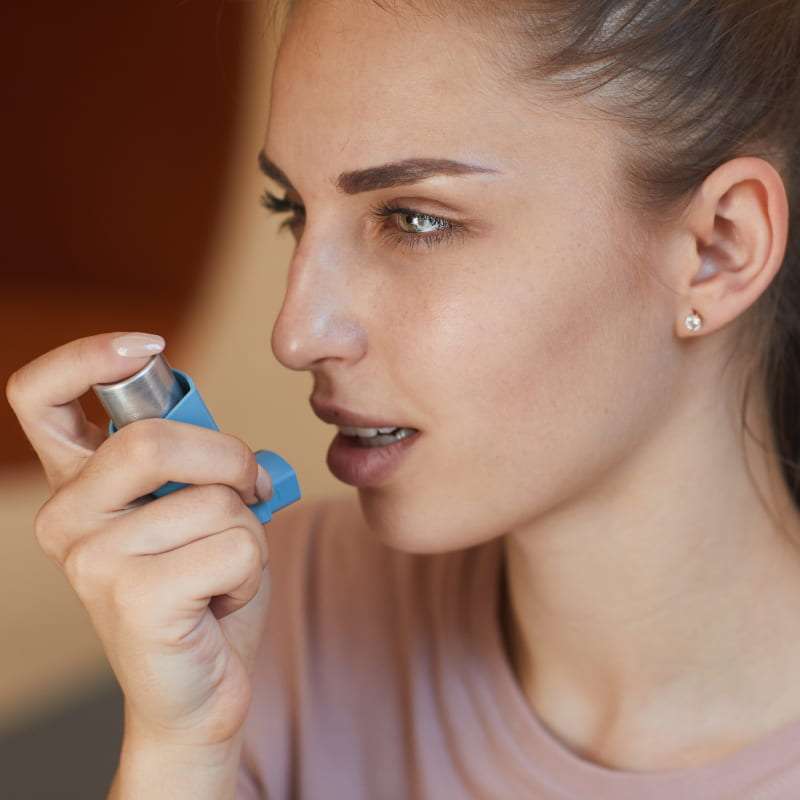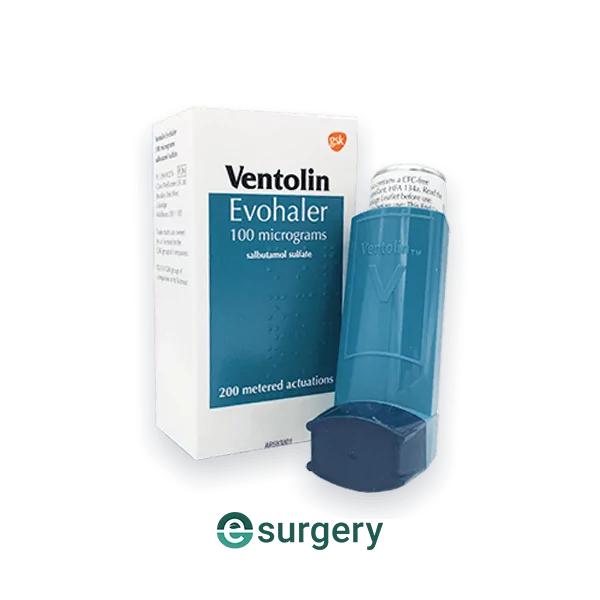
Why Is Asthma Worse During Winter?
As the winter months draw in, our excitement for festivities and the New Year is tempered by the shorter days, colder air, and disruptive weather. For asthma sufferers, seasonal changes such as these can be more than just an inconvenience. You may experience winter Asthma as a result of weather changes!
Asthma is a condition experienced year round, but sometimes these seasonal changes can leave you short of breath and more susceptible to an attack. Environmental factors caused by changes in weather or temperature can function as asthma triggers. To give an example from the summer, pollen counts tend to reach their peak during the months of June and July. Pollen can act as an allergen, triggering a hay fever response and exacerbating asthma symptoms. Seasonal triggers like these aren’t exclusive to the warmer months: in fact, winter is often reported as the worst season for asthma sufferers.
So, what is it about winter that has us reaching for our inhalers? Let’s take a look at some of the major factors.
Cold Temperatures
As the temperature drops, asthma symptoms increase. It’s particularly noticeable when exercising in cold air, as we’re more prone to inhale through our mouths. This delivers cold and dry air into our respiratory system before it can be warmed by our blood vessels, which can trigger asthma symptoms for a variety of reasons.
When your lungs breathe in cold air, they often tighten in response. If that air is dry, it can also evaporate the protective fluid found in your airways, leading to irritation. In combination, these can trigger airway spasms, leading to classic asthma symptoms such as:
- Coughing
- Wheezing
- Shortness of breath
- Tightness in the chest
Cold temperatures also tend to increase the likelihood of another asthma trigger: respiratory infections such as the common cold.
Colds & Flus
With winter weather comes an increase in colds, the flu and chest infections. Viruses and bacteria tend to survive longer on surfaces outside of direct sunlight, conditions far more likely to be met during winter. The cold air also preserves infectious droplets for longer. Your immune system may also be compromised by a lack of Vitamin D [1], a deficiency more likely during a season with more overcast weather (this is just one reason you might want to try dietary supplements).

Of course, the symptoms of these illnesses don’t combine well with respiratory conditions. Increased mucus production alongside coughing, wheezing, and sneezing is enough to send anybody gasping for breath, but it’s particularly bad for people with asthma. Just another reason to wear face masks and stock up on hand gel this winter.
Winter Allergies
Some allergies aren’t affected by the time of year, but others tend to flare up during certain seasonal conditions – we gave hay fever as a summer example. But pollen counts tend to drop in the autumn, so what about winter weather could be triggering an allergic response?
With wet weather comes damp, and the cold keeps people inside for longer. This combination can result in black mold developing and triggering allergic reactions through airborne spores. Being homebound can also expose you more to dust mites (who love central heating), another potential allergen.
Basically, anything that triggers a histamine response that causes airway inflammation is bad news for asthma sufferers. If you are finding yourself struggling with allergies, antihistamines such as Telfast can really help.
How Can I Prevent Asthma During Winter?
There are a few good habits you can practice during wintertime that should prevent the worst of the season from getting to you.
- Warm up before spending time outdoors in cold weather. Aerobic activity is a good choice.
- Cover your mouth and nose with a warm material such as a scarf or face mask, in order to diminish the effects of the cold air on your lungs.
- Remember to breathe through your nose in order to warm the air before it enters your body.
- Try to stay inside if temperatures drop below -12°C.
- Frequently dust and vacuum in order to remove allergens.
- Practice social distancing and wash your hands to prevent infection.

Of course, while these habits help, your main form of protection should always be your inhaler.
Using Your Inhalers To Prevent Winter Asthma
You should have two kinds of inhalers ready to fight against asthma symptoms: a preventer inhaler and a reliever inhaler.
Preventative inhalers such as a Clenil Modulite Inhaler help desensitise your airways to the harsh winter conditions, and should be used as prescribed. If you find yourself forgetting to use your preventative inhaler, make sure to set reminders on your phone – it’s really important for keeping asthma in check.
Reliever inhalers such as a Ventolin Inhaler or Salbutamol Inhaler are essential to carry on your person in case of an emergency. You should never leave the home without them, particularly during cold weather. Make sure you have a reminder in place – storing them by the door with your keys, for example.
If you find your inhalers are becoming ineffective, or just aren’t managing your symptoms like they used to, you should contact your doctor immediately and arrange an asthma review. Getting a review before the winter season is probably a good idea for your health, even if you feel like nothing has changed. If not, you could find yourself unable to manage your condition.
There is also a chance of mechanical failure or blockages in the inhaler, but this is almost always caused by a failure to clean them, or by cleaning them improperly. It’s really important to keep your inhalers clear of dust, and they’re not self cleaning! Thankfully, we’ve made a couple of nifty guides just in case you aren’t sure how: How To Clean A Clenil Modulite Inhaler and How To Clean A Ventolin And Salbutamol Inhaler.
Can I Buy Inhalers Online?
If you have asthma, having access to preventative and a reliever inhalers at all times is essential for managing your condition. So if you’re running low, make sure you’re ready to order from registered online pharmacies such as e-Surgery, with next day inhaler delivery. We stock Ventolin and Salbutamol inhalers from just £7.95, and Clenil Modulite inhalers from as little as £14.95. Don’t delay – make sure you’re ready this winter.

Sources
- Vitamin D And The Immune System | PubMed
Further Reading
- Winter asthma triggers | Asthma UK
- Living with asthma | NHS
- Salbutamol | BNF









